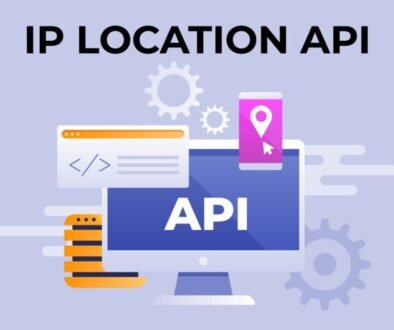Cracking the Code: How to Craft SMART Goals for Software Engineers
In the fast-evolving world of software engineering, setting clear and achievable goals is critical for personal and professional growth. SMART goals (Specific, Measurable, Achievable, Relevant, Time-bound) are a proven framework that empowers software engineers to define their objectives with precision and achieve them effectively. Goal setting is not just a task; it’s a skill that can significantly impact one’s career trajectory, project success, and overall satisfaction in the profession.
Understanding SMART Goals
SMART goals are a well-established framework designed to help individuals set objectives that are clear, quantifiable, achievable, relevant, and time-bound. Each element of the SMART acronym plays a vital role in guiding goal setting. Let’s break down what each aspect entails:
- Specific: Goals should be well-defined and clear. They should provide a clear picture of what needs to be achieved.
- Measurable: Goals should be quantifiable, allowing progress to be tracked and evaluated.
- Achievable: Goals should be challenging yet attainable, motivating individuals to strive for success without setting them up for failure.
- Relevant: Goals should align with the individual’s role, responsibilities, and aspirations, as well as with the broader organizational objectives.
- Time-bound: Goals should have a defined timeline or deadline, providing a sense of urgency and a target to work towards.
The Importance of SMART Goals for Software Engineers
The field of software engineering demands precision, efficiency, and adaptability. SMART goals offer software engineers a strategic advantage in navigating this complex landscape. Here’s why SMART goals for software engineers are crucial :
Providing Clarity in Ambiguity
Software projects often involve dealing with ambiguous or complex problems. SMART goals bring clarity to these situations by precisely defining what needs to be achieved, leaving no room for confusion.
Enhancing Project Performance
When software engineers set measurable and achievable goals, project performance is enhanced. The team can track progress, identify bottlenecks, and make timely adjustments to stay on course.
Driving Professional Growth
SMART goals are a pathway to personal and professional development. They encourage continuous learning and improvement, enabling software engineers to enhance their skills and advance their careers.
Crafting Specific SMART Goals
Crafting SMART goals begins with the ‘S’ – being Specific. Software engineers can make their goals specific by narrowing down what they want to achieve and how they plan to achieve it. Here are some examples:
- Enhance Coding Proficiency: Instead of a vague goal like “improve coding skills,” a specific SMART goal would be “Complete an online course on advanced algorithms and data structures within the next three months.”
- Increase Bug Resolution Efficiency: Instead of a broad goal like “reduce bugs,” a specific SMART goal would be “Decrease the average bug resolution time by 20% by the end of the next quarter through enhanced debugging techniques and better collaboration with the QA team.”
- Optimize Database Performance: Instead of a general goal like “work on database optimization,” a specific SMART goal would be “Reduce database query response time by 15% by optimizing SQL queries and indexing key tables within the next two development sprints.”
By being specific, software engineers can focus their efforts, measure progress, and achieve their goals more effectively.
Making Goals Measurable and Achievable
The ‘M’ and ‘A’ components of SMART goals are intertwined: goals need to be measurable to be achievable. Let’s explore how software engineers can make their goals measurable and achievable:
Measuring Progress
Measuring progress is crucial for any goal. Software engineers can quantify their goals by using metrics such as time taken to complete a task, lines of code written, bugs resolved, or customer satisfaction ratings. This quantification allows for clear assessment and tracking of progress.
Achieving Realistic Targets
Goals need to be achievable to maintain motivation and engagement. Software engineers should ensure their goals are challenging but within reach. Setting unrealistic goals can lead to frustration and a sense of failure. For instance:
Unrealistic Goal: “Learn five programming languages fluently within three months.”
Achievable Goal: “Familiarize myself with the basics of two new programming languages and write a simple project in each within the next three months.”
Ensuring Goals are Relevant and Time-bound
Relevance to Software Engineering Roles
The ‘R’ in SMART goals emphasizes the importance of setting goals that are relevant to one’s role. For software engineers, relevance is paramount. Goals should align with the projects, team dynamics, and the overall goals of the organization. Here are goal setting examples of relevant goals for different roles:
For a Front-end Developer: “Enhance user experience by reducing webpage load time by 20% through efficient code and asset optimization within the next quarter.”
For a Project Manager: “Improve team collaboration and project efficiency by implementing an Agile methodology for all software development projects by the end of this year.”
Setting Realistic Timelines
The ‘T’ in SMART goals emphasizes the necessity of establishing a clear timeframe for achieving the goal. Software engineering projects are often time-sensitive, making it crucial to set realistic deadlines. Unrealistic timelines can lead to burnout and compromised quality. Here’s an example:
Unrealistic Time-bound: “Develop a feature-rich mobile app within one week.”
Realistic Time-bound: “Complete the prototype of the mobile app with essential features within three months, allowing for thorough testing and iteration.”
By setting realistic timelines, software engineers can manage their workload effectively and deliver high-quality results within the stipulated time.
Overcoming Challenges in Setting SMART Goals
Challenge: Balancing Workload and Goals
Software engineering roles can be demanding, leaving little room for additional goals. Balancing the daily workload with setting and achieving goals can be a challenge. To overcome this, software engineers can:
- Prioritize tasks and set achievable short-term goals alongside daily work.
- Allocate specific time blocks for working on their goals to ensure consistent progress.
Challenge: Adapting to Evolving Technologies
The rapidly evolving tech landscape often necessitates quick adaptation to new technologies. This can pose a challenge when setting long-term goals. To overcome this, software engineers can:
- Incorporate flexibility into their goals, allowing for adjustments as technologies evolve.
- Focus on broader skills and principles that remain relevant even as technologies change.
Conclusion
In the realm of software engineering, where innovation and efficiency are paramount, SMART goals provide a structured approach to personal and professional growth. By crafting Specific, Measurable, Achievable, Relevant, and Time-bound goals, software engineers can navigate their careers, enhance their skills, and contribute to the success of their projects and organizations. Personal goal setting is a journey—it’s about progress, not perfection. Embrace SMART goals, adapt them to your unique path, and watch your software engineering career flourish.



